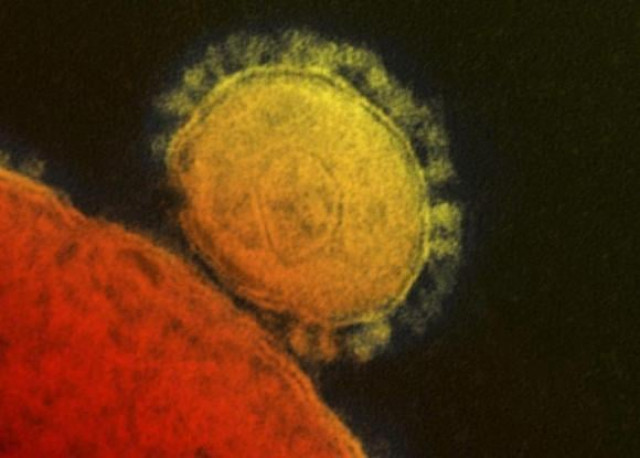MERS Coronavirus: Heading off viral disease with inadequate tools
Official NIH says Pakistan lacks an integrated surveillance system that can help tackle all diseases well in time

Every year National Institute of Health (NIH) issues an advisory before and after Hajj regarding Middle East Respiratory Syndrome (MERS) Coronavirus – a viral disease that caused hundreds of deaths in the Middle East – but experts believe that an alert is not enough.
Talking to The Express Tribune on condition of anonymity, an official who deals with the infectious disease at the NIH said a lot is needed to be done to prevent the disease from entering the country along with the pilgrims.
He said currently Pakistan lacks Integrated Disease Surveillance and Response System. “This system can help tackle all kinds of diseases well in time with an integrated approach,” he said.

Moreover, there is a need to create a strong network of all the laboratories to help them detect the disease in a timely fashion and inform the relevant health department, he said.
The expert stated that during Hajj the government makes it mandatory for all the people returning to Pakistan at all international airports to be screened for MERS-CoV.
“But if a patient carrying the virus takes a medicine a few hours before landing he cannot be detected for the disease,” he explained.
He suggested that there was a need for the Pakistan government to develop a strong link with the Saudi Arabia health department through Ministry of Religious Affairs and get details of all the patients who suffer from a minor fever or flu.
“This will help in a thorough examination of the person as soon as he reaches any airport in Pakistan,” he said.
Shaheed Zulfikar Ali Bhutto Medical University (SZABMU) Vice Chancellor Prof Dr Akhram Javed said winter season is approaching and the MERS CoV gets active during the season. “All people travelling to the Middle East countries in winters must take extra precautionary measures,” he said.
Dr Javed said a majority of international airports in Pakistan lack facilities – like Thermo Scan that can help detect the symptoms of MERS-CoV and quarantine where a man suspected for the disease can be kept under investigation for a few days.
He also expressed dissatisfaction over the diagnostic facilities available in the country that, he said, do not meet the necessary requirements.
However, Islamabad Airport Health Officer Dr Irfan Tahir said the airport administration remained very active during the Hajj season for creating awareness among all the passengers going for Hajj and distributed relevant pamphlets carrying information related to MERS prevention.
“However, nowadays the airport authorities are not actively screening people who return to Pakistan after Umrah,” he admitted.
“Currently our main focus is on Ebola Virus and inoculating passengers for polio by issuing valid certification to travel abroad,” he said.
Published in The Express Tribune, November 22nd, 2014.


















COMMENTS
Comments are moderated and generally will be posted if they are on-topic and not abusive.
For more information, please see our Comments FAQ